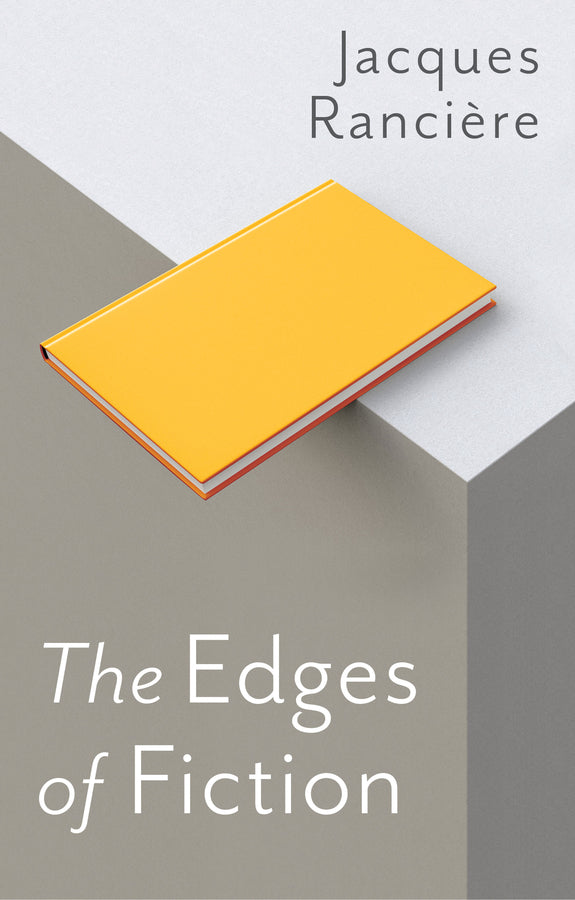Description
Unveil the profound layers of storytelling with this compelling literary piece that explores the intricate relationship between fiction and reality. From the insightful thesis of Aristotle’s Poetics to contemporary reflections by Rancičre, this book investigates how fiction transforms ordinary experiences into extraordinary narratives. With an ISBN of 9781509530458 and published by John Wiley & Sons in 2019, this BRAND NEW paperback spans 180 pages, captivating readers as it delves into how unexpected events flip our understanding of happiness, knowledge, and societal constructs. This essential read for scholars and enthusiasts alike elucidates the paradoxes of human experiences, guiding you through the historical evolution of literary forms that challenge our perceptions. Join iconic literary figures like Stendhal and Poe in a journey that resonates through the ages, making it an indispensable addition to any bookshelf. Whether for personal enlightenment or academic research, this book bridges the concepts of fiction and the empirical world, providing a fresh perspective on modern storytelling. Please note: Shipping for this item is free. Allow up to 6 weeks for delivery. Once your order is placed, it cannot be cancelled.
Note: Shipping for this item is free. Please allow up to 6 weeks for delivery. Once your order is placed, it cannot be cancelled.
Condition: BRAND NEW
ISBN: 9781509530458
Year: 2019
Publisher: John Wiley & Sons (UK)
Pages: 180
Description:
What distinguishes fiction from ordinary experience is not a lack of reality but a surfeit of rationality “ this was the thesis of Aristotle™s Poetics The rationality of fiction is that appearances are inverted Fiction overturns the ordinary course of events that occur one after the other, aiming to show how the unexpected arises, happiness transforms into unhappiness and ignorance into knowledgeIn the modern age, argues Rancière, this fictional rationality was developed in new ways. The social sciences extended the model of causal linkage to all spheres of human action, seeking to show us how causes produce their effects by inverting appearances and expectations Literature took the opposite path Instead of democratizing fictional rationality to include all human activity in the world of rational knowledge, it destroyed its principles by abolishing the limits that circumscribed a reality peculiar to fiction It aligned itself with the rhythms of everyday life and plumbed the power of the Ĺ›random momentĹĄ into which an entire life is condensedĂ‚Â Ă‚Â In the avowed fictions of literature as well as in the unavowed fictions of politics, social science or journalism, the central question is the same: how to construct the perceptible forms of a shared world. From Stendhal to JoÄ‚Ĺo GuimarÄ‚Ĺes Rosa and from Marx to Sebald, via Balzac, Poe, Maupassant, Proust, Rilke, Conrad, Auerbach, Faulkner and some others, this book explores these constructions and sheds new light on the constitutive movement of modern fiction, the movement that shifted its centre of gravity from its traditional core to
Note: Shipping for this item is free. Please allow up to 6 weeks for delivery. Once your order is placed, it cannot be cancelled.
Condition: BRAND NEW
ISBN: 9781509530458
Year: 2019
Publisher: John Wiley & Sons (UK)
Pages: 180
Description:
What distinguishes fiction from ordinary experience is not a lack of reality but a surfeit of rationality “ this was the thesis of Aristotle™s Poetics The rationality of fiction is that appearances are inverted Fiction overturns the ordinary course of events that occur one after the other, aiming to show how the unexpected arises, happiness transforms into unhappiness and ignorance into knowledgeIn the modern age, argues Rancière, this fictional rationality was developed in new ways. The social sciences extended the model of causal linkage to all spheres of human action, seeking to show us how causes produce their effects by inverting appearances and expectations Literature took the opposite path Instead of democratizing fictional rationality to include all human activity in the world of rational knowledge, it destroyed its principles by abolishing the limits that circumscribed a reality peculiar to fiction It aligned itself with the rhythms of everyday life and plumbed the power of the Ĺ›random momentĹĄ into which an entire life is condensedĂ‚Â Ă‚Â In the avowed fictions of literature as well as in the unavowed fictions of politics, social science or journalism, the central question is the same: how to construct the perceptible forms of a shared world. From Stendhal to JoÄ‚Ĺo GuimarÄ‚Ĺes Rosa and from Marx to Sebald, via Balzac, Poe, Maupassant, Proust, Rilke, Conrad, Auerbach, Faulkner and some others, this book explores these constructions and sheds new light on the constitutive movement of modern fiction, the movement that shifted its centre of gravity from its traditional core to

